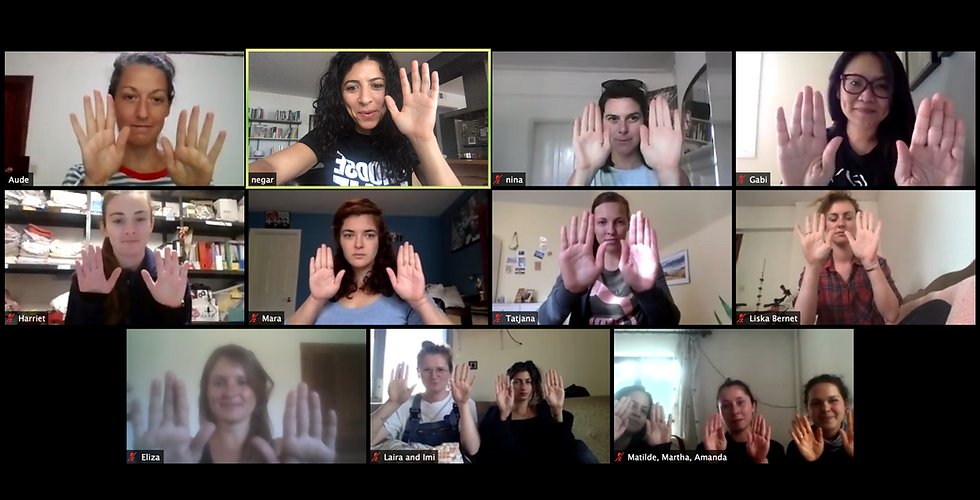In Praise of Pool Noodles
- Nancy Jane Moore
- Nov 29, 2018
- 2 min read

For my International Women’s Self Defense Day workshop, I started class with pool noodle duels. After a few minutes, I had a group of adult women, ranging in age from their 20s to their 60s, playing, giggling, and, not incidentally, trying to hit each other. By the time we moved on to yelling “no” and hitting pads, they were ready to go.
This workshop was my first time teaching ESD, though I’ve given a lot of presentations on self defense and taught a lot of Aikido. Many of my fellow students from last summer’s camp found pool noodles valuable in their classes, so I decided to try them. I’m glad I did.
Giving newcomers to self-defense some time to play fight in a safe environment sets the stage for the more serious fighting to come. Far too many people raised as girls never get much experience of play fighting. Starting class with a little bit of it seems to open students up for more.
When I think about it that way, play becomes a vital component in self-defense training. Play relaxes us, takes our minds off the things that scare us, and opens the door to “I can do this.”
The laughter might have been even more important than the play itself.

Self-defense is serious business. All too often the emphasis is on all the dangers out there, the abuse, the violence, the things we must protect ourselves from. Many people sign up because they’re worried about those things and are looking to find some way to keep themselves safe.
In a related way, martial arts classes look very serious to a beginner. Formal bow ins, addressing teachers as Sensei or Master, disciplined classes.
But if you’ve trained awhile, you know that it isn’t always serious on the mat. One of my favorite pictures of students training in Aikido is of two friends of mine, both named John, both large men. One John has the other off-balance. Both of them are laughing.
The truth is, there’s a lot of pleasure in using your body, a lot of fun in the fighting arts, a lot of joy in knowing you can defend yourself.

At the 2018 teacher training camp, Sheila Watson made an important point in reminding us that it was OK to cry. In fact, it’s good to cry, especially when you are overcome by emotions and need to let them out.
Likewise, it’s OK to laugh. In fact, it’s good to laugh.
No one has to “suck it up” to reach the point where they can take care of themselves. It’s OK to feel things, to have emotions, to get angry, to cry, and to laugh.
So we laughed in my ESD class.
And at the end, when most of the students posed for a group picture holding their pool noodles, they grinned and looked formidable at the same time.


























Comments